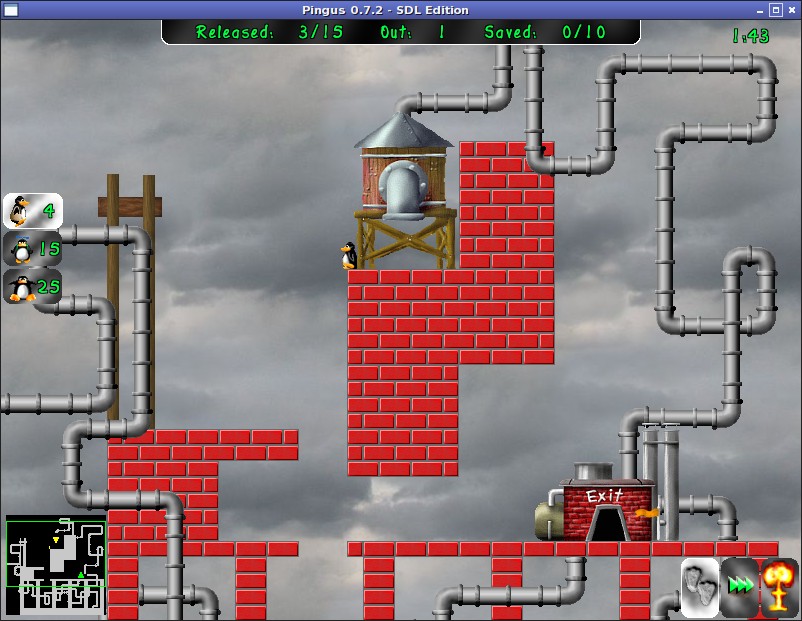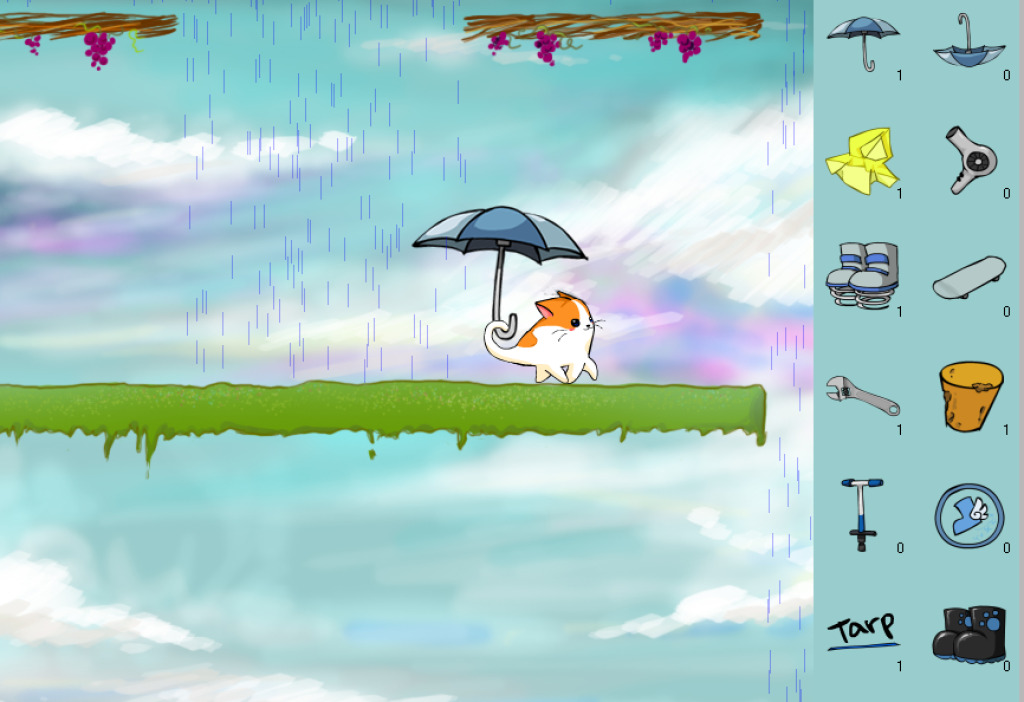I've been working on a Linux distro for over 20 years now. Not sure who will see it, but I need to finish it.
One feature is lightweight games. I like to think that I've got a pretty good collection.
I'd planned to devote part of an upcoming distro site to the games. But they're a better match for here.
This post provides a few screenshots, years old, of games from past editions of the distro. I think that I'll work up Debian-compatible instructions for building these things.
* Screenshot of the games folder as it looked circa 2010. It's larger now.
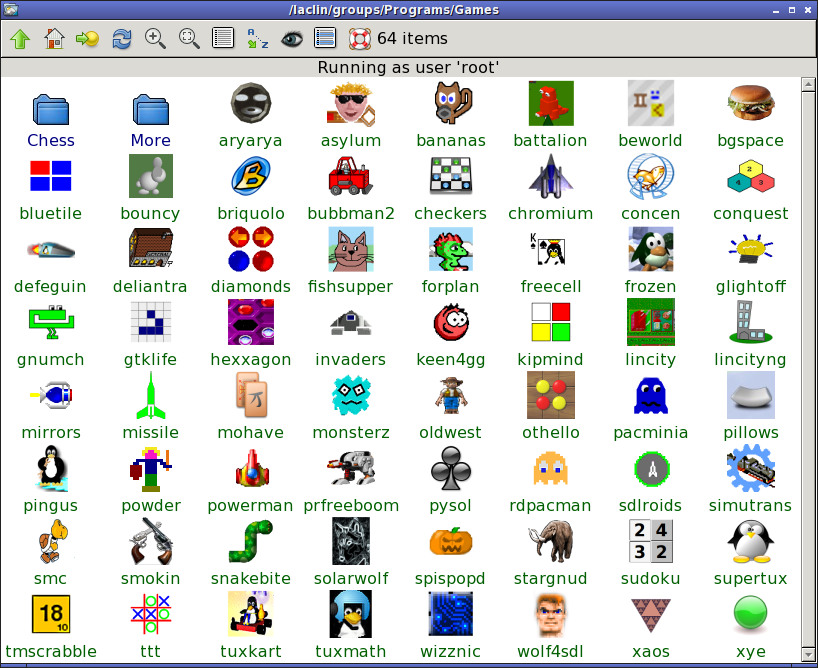
* Frozen Bubble. This game isn't rare, but it's become harder to build in recent years.

* BEWorld. This is my very own video game.
Mr. Business, who some of my current online associates have met, is the only person remaining from that period. I was experimenting with gamedev at the time and he was hoping to launch a gamedev startup.
To be clear, the startup wasn't going to be based on this toy. This game was simply something that I had fun with.
The game's primary claim to fame is that it might be the largest single-Tcl video game in existence. The code is about 100 pages of Tcl not counting embedded binary data or blank lines.
The goal is simply to make it through the Flames of Heaven, which, as everybody knows, burn hot.
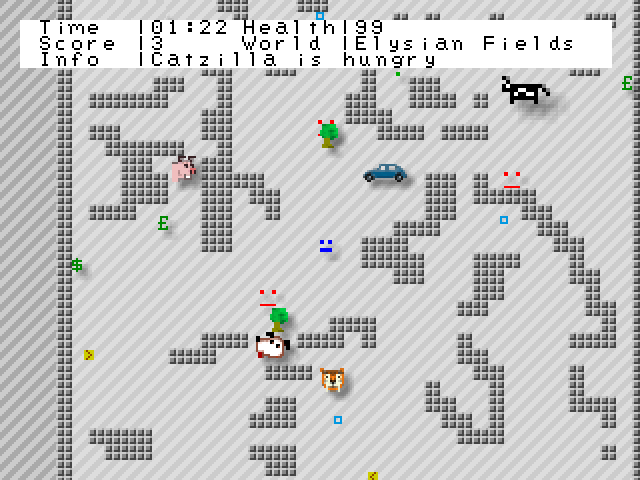
* LinCity Next Generation. Yes, this game is two decades old and it's not really at the level of SimCity. But it's FOSS and shouldn't be allowed to die.
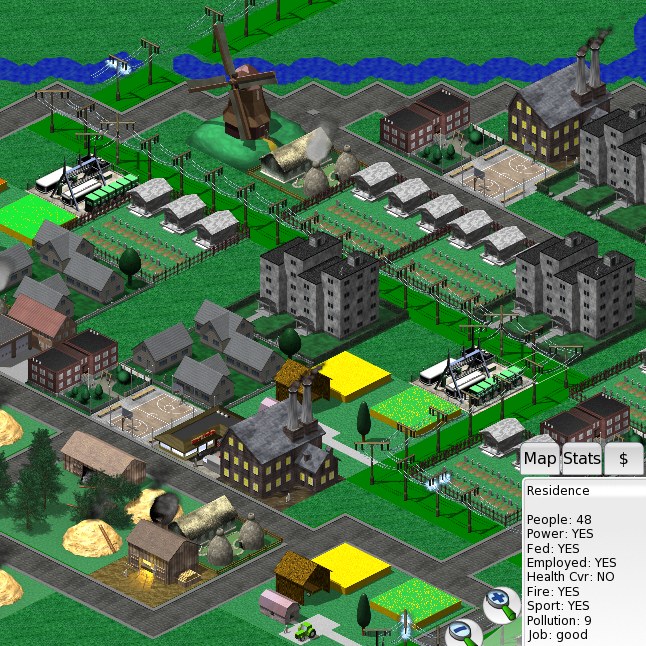
* Fydo's Pillows. The concept for this game is fun: stop a nuclear attack by using a catapult to land pillows under an incoming missile. But I'll need to do some work to get it to build with standard modern distros.
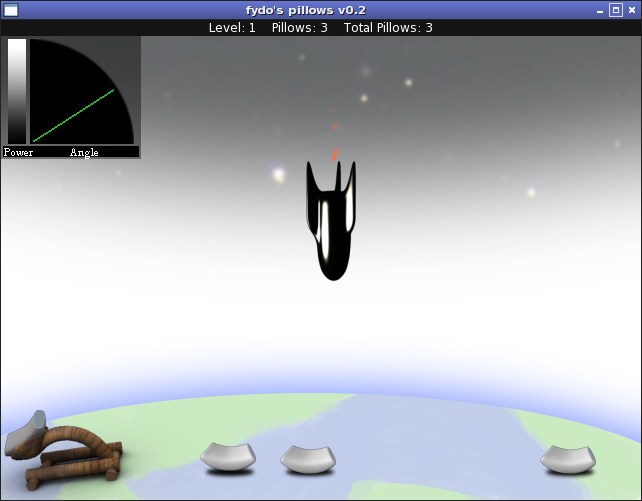
* Simutrans. Again, not really a competitor to SimCity, but it's fun.

* This is a small setup program that I wrote for Simutrans about 10 years ago. I've added launchers of this type to a few other programs, including regular applications as well as games; they simplify things quite a bit.
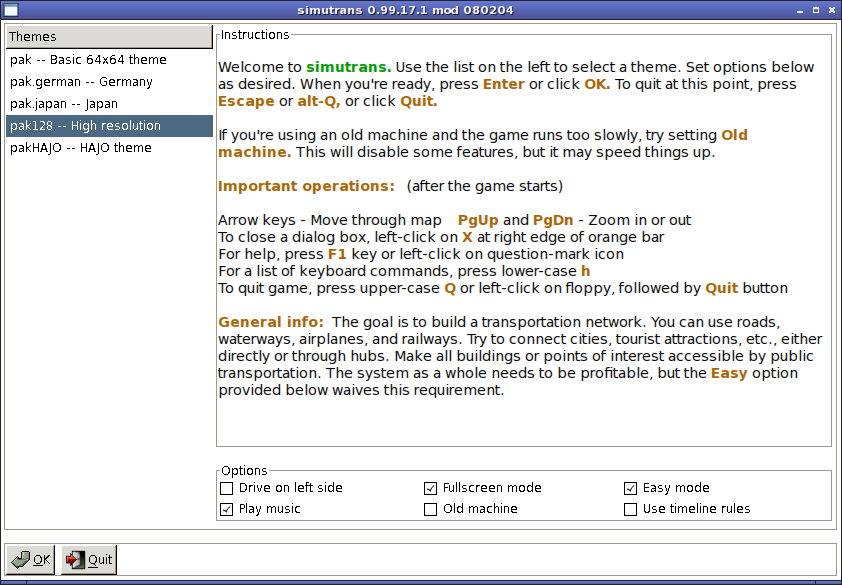
* I did a little of the keyboard code for Secret Maryo Chronicles. This is a sample level from the game.
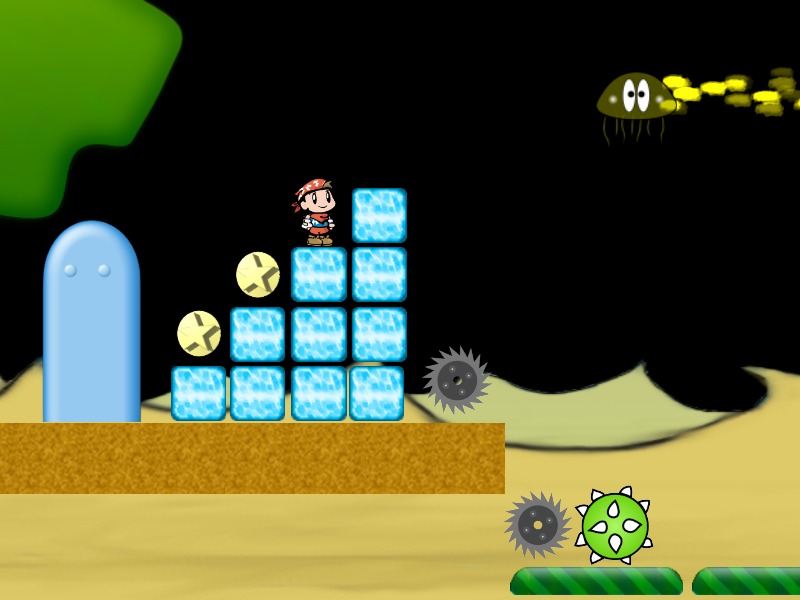
* Snakebite is part of an amazing FOSS games system named Rocks 'n' Diamonds.
The game system can be used to create puzzle worlds of many different types. The flavor is 1980s or 1990s but this is FOSS that deserves recognition.

* Nearly 40 years ago, I used to play Rogue and, subsequently, Hack. Hack involved into Nethack and then there was SlashEm and a related GUI named NoeGNUd.
StarGnud is my version of NoeGNUd. StarGnud is more limited than NoeGNUd, in some respects; for example, it doesn't support SlashEm as a back-end and it has fewer tilesets.
However, my version includes a number of bug fixes and enhancements.
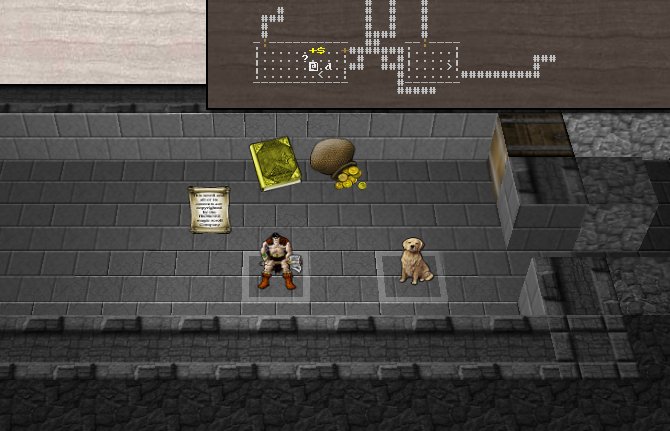
* Wizards and nuclear weapons. This is another StarGnud screenshot.
I thought that it would be interesting to have a dungeon-style game that included phasers and nuclear weapons. Now, thanks to FOSS, I've got one.
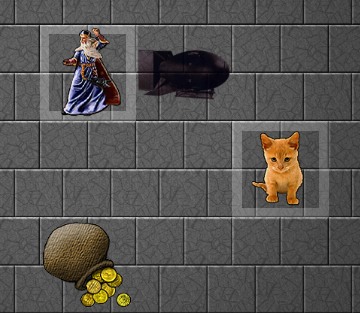
* This is Googelon, a character from Battalion, as he appears at Christmas. The game switches modes automatically during the Christmas season.

* I support a few DOS games such as Commander Keen. They run under Linux via DOSBox.
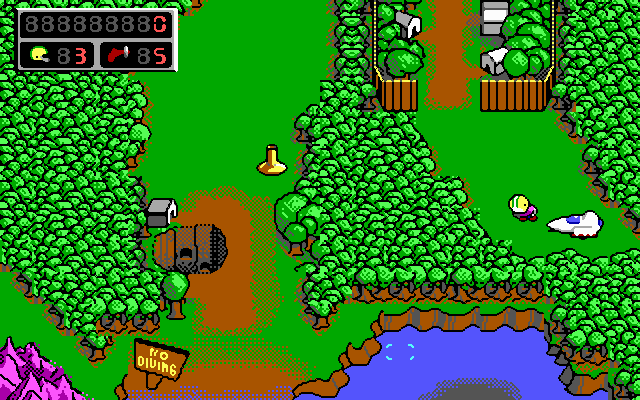
* I've got perhaps a dozen chess GUIs and/or engines. This is EBoard, one of the GUIs. I use XBoard as well.
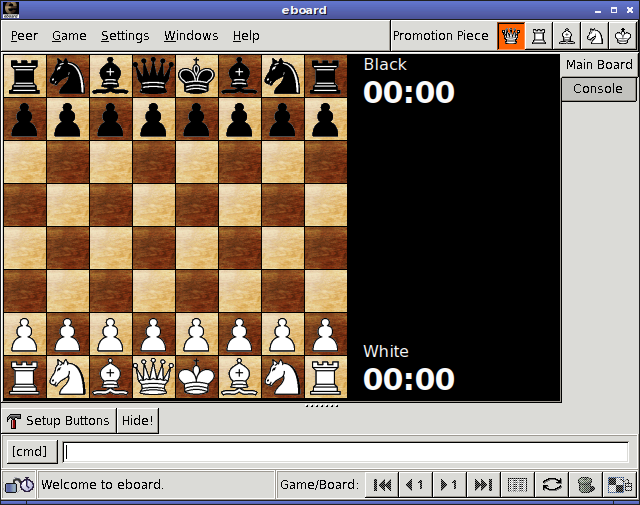
* Do the new Star Trek movies and/or the TV series include Vulcan Chess?
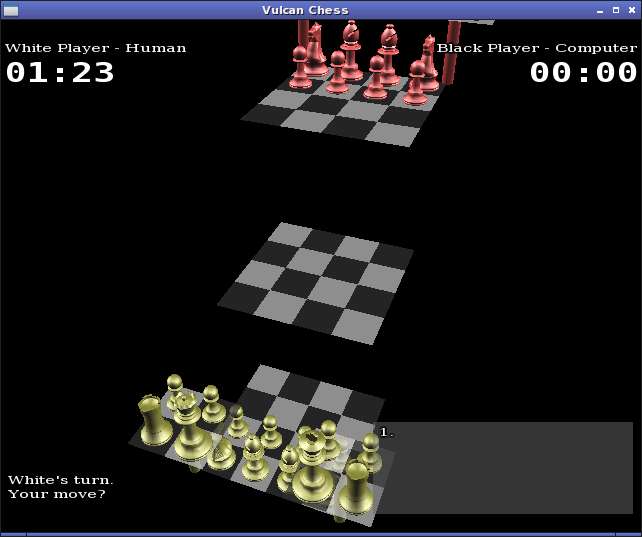
* Mirror Magic is a precursor to Rocks 'n' Diamonds.
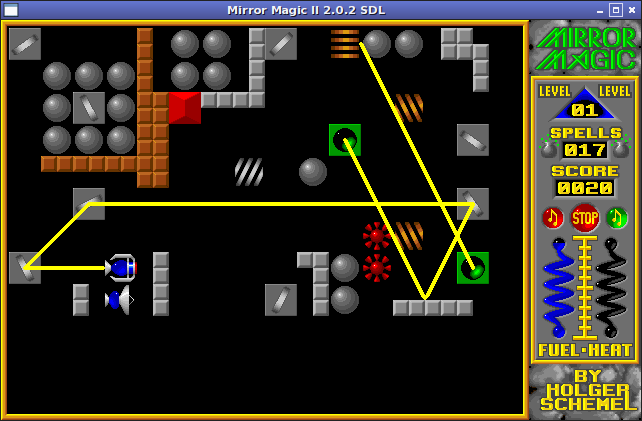
* Old West, like Snake Bite, is part of the Rocks 'n' Diamonds games framework.
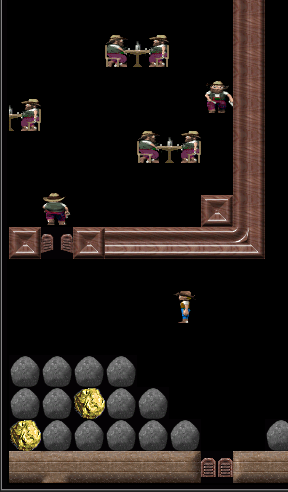

* PRFreeBoom is my version of Doom, It combines PRBoom, FreeDoom, Slige, Slump, and a few other pieces.
Yes, Doom is a First Person Shooter, one that is dramatically over-exposed in the FOSS game world through all of its descendants.
But the original is lightweight. It was also a fun diversion in the mid-1990s.
Office LANs were still a new concept, at the time, in many small companies. But my firm had one and we fiddled with it so that we could explore a novel world.
On the weekend, of course. Our CEO was a no-nonsense type.
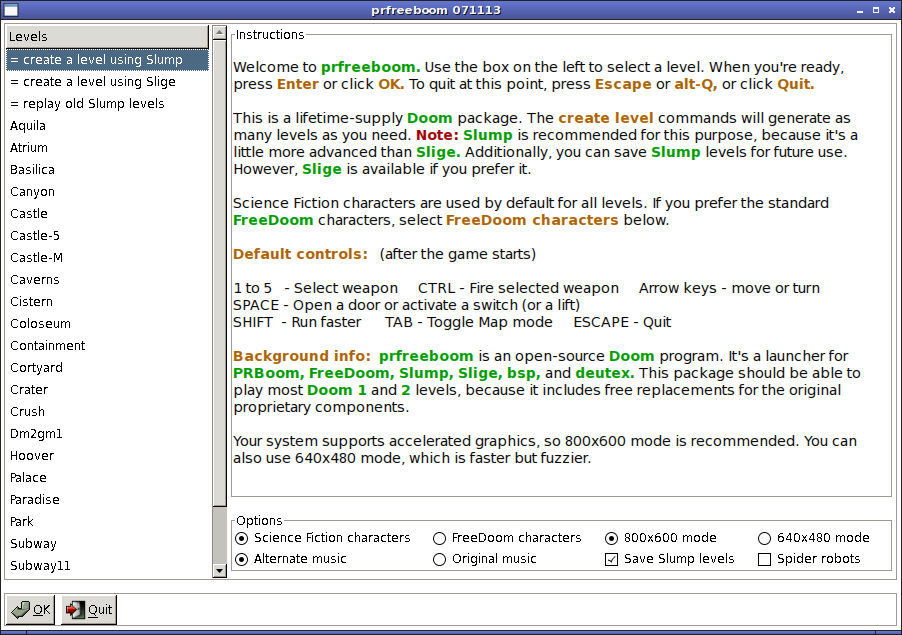
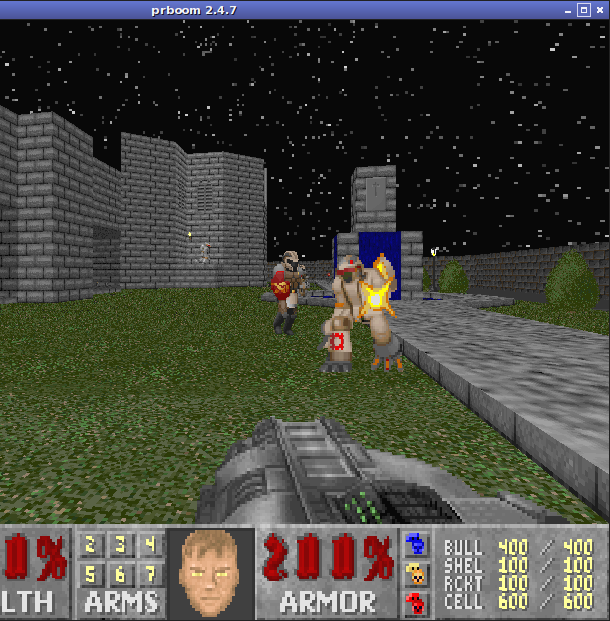
* Chromium B.S.U. is a relatively common but engrossing FOSS top-down scroller.
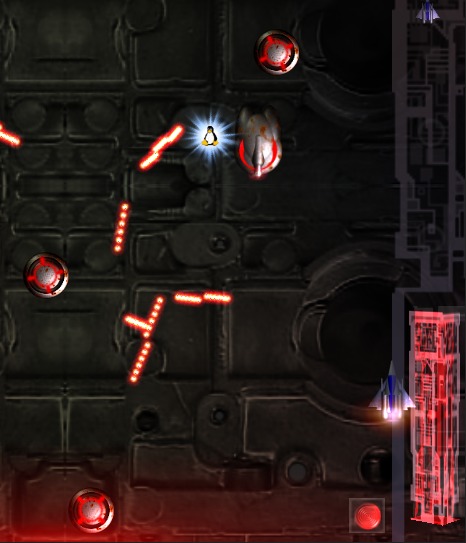
* I possess rudimentary arithmetic skills. So, I don't really need to learn 3 times 4. However, regardless, I play this math game once in a while.
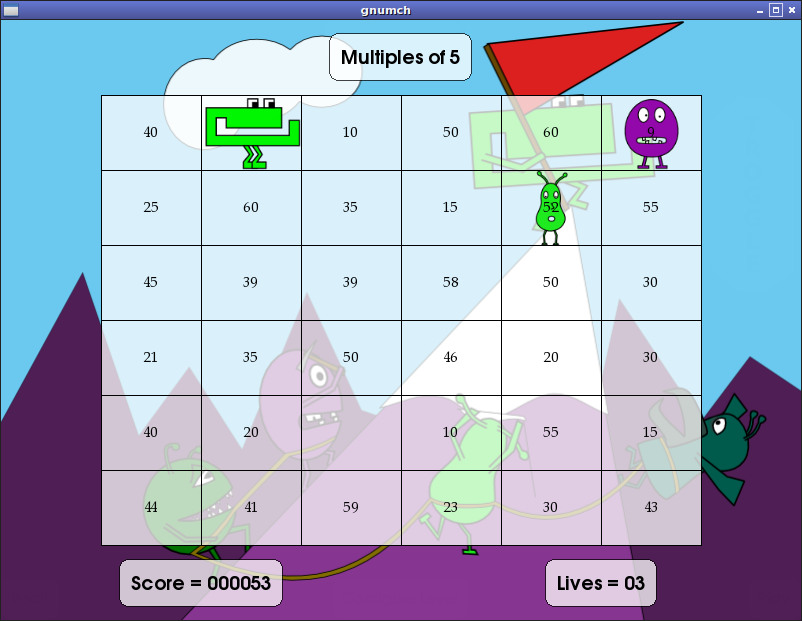
* Bubbman 2 is a retro-1980s game. It's interesting mostly as a curiosity and a historical artifact. Should it be allowed to disappear because of that? Nope. I like to save useful things.
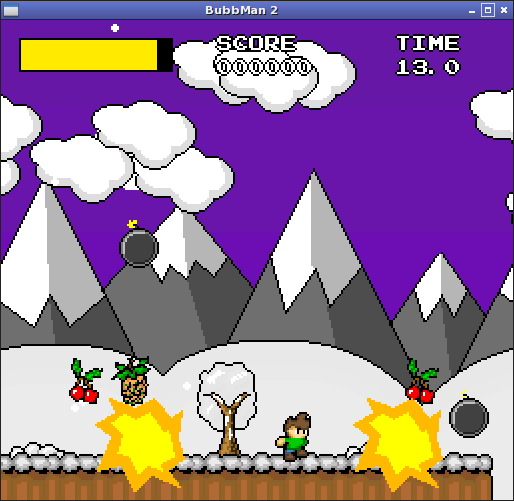
* SuperTux isn't rare at all, but here's the copy from my distro.
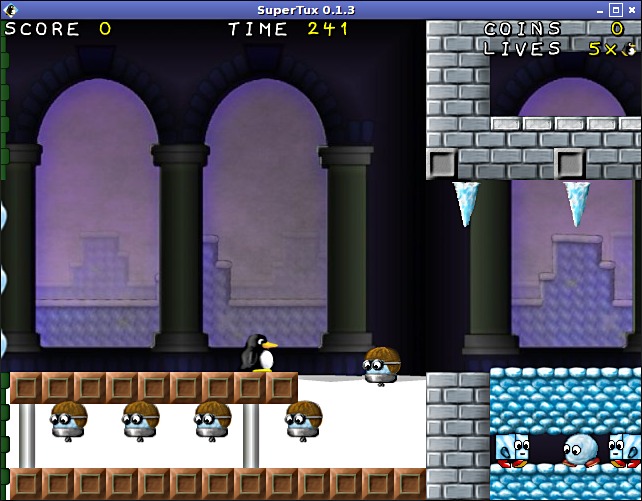
* Pingus is a lesser-known Linux game that's moderately interesting. This game is similar to an old DOS and MS-Windows game known as Lemmings. The screenshot is from my version of the game, which fixes a few bugs and adds a few levels that aren't in the standard version.
